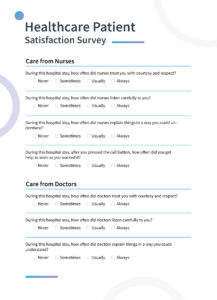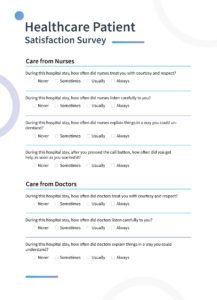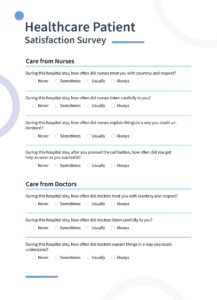Social media has become an integral part of our lives. It is a powerful tool that can be used to connect with patients, families, and healthcare providers. However, it is important to use social media responsibly and ethically. A well-crafted social media policy can help ensure that your healthcare organization is using social media in a way that is consistent with its mission, values, and legal obligations.
A social media policy for healthcare should address a variety of topics, including:
- Appropriate use of social media by employees
- Confidentiality of patient information
- Responding to negative comments or reviews
- Social media advertising
- Social media monitoring
A social media policy should be clear, concise, and easy to understand. It should be communicated to all employees who use social media on behalf of the healthcare organization. Employees should be trained on the policy and held accountable for following it.
Benefits of a Social Media Policy for Healthcare
There are many benefits to having a social media policy for healthcare. These benefits include:
- Improved communication: A social media policy can help ensure that healthcare organizations are using social media in a way that is consistent with their mission, values, and legal obligations.
- Increased transparency: A social media policy can help healthcare organizations be more transparent with their patients and families.
- Enhanced reputation: A social media policy can help healthcare organizations enhance their reputation by showing that they are committed to using social media responsibly and ethically.
- Reduced risk: A social media policy can help healthcare organizations reduce their risk of legal liability by providing guidance on how to use social media in a way that complies with applicable laws and regulations.
Considerations for Developing a Social Media Policy for Healthcare
There are a number of considerations that healthcare organizations should keep in mind when developing a social media policy. These considerations include:
- The organization’s mission, values, and legal obligations: The social media policy should be consistent with the organization’s mission, values, and legal obligations.
- The target audience: The social media policy should be tailored to the organization’s target audience.
- The types of social media platforms that the organization uses: The social media policy should address the specific risks and challenges associated with each platform.
- The resources that the organization has available: The social media policy should be realistic and achievable given the organization’s resources.
FAQs
What are the key elements of a social media policy for healthcare?
The key elements of a social media policy for healthcare include:
- A statement of purpose
- Guidelines for appropriate use of social media by employees
- Confidentiality of patient information
- Responding to negative comments or reviews
- Social media advertising
- Social media monitoring
Who should be responsible for developing and implementing a social media policy for healthcare?
The responsibility for developing and implementing a social media policy for healthcare should be shared by the organization’s leadership, IT department, and legal counsel.
How often should a social media policy for healthcare be reviewed and updated?
A social media policy for healthcare should be reviewed and updated at least annually to ensure that it is current with the latest trends and best practices.


